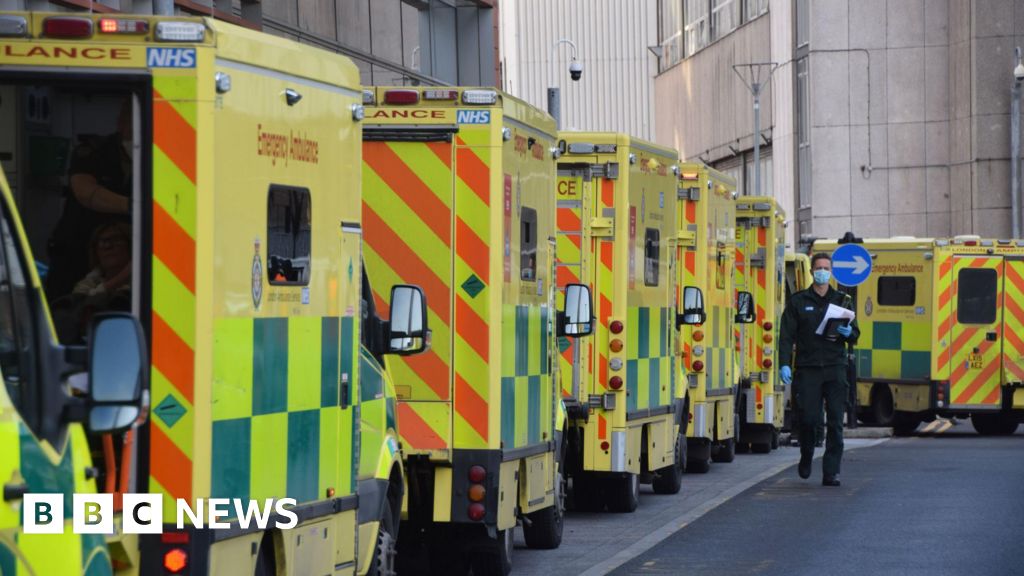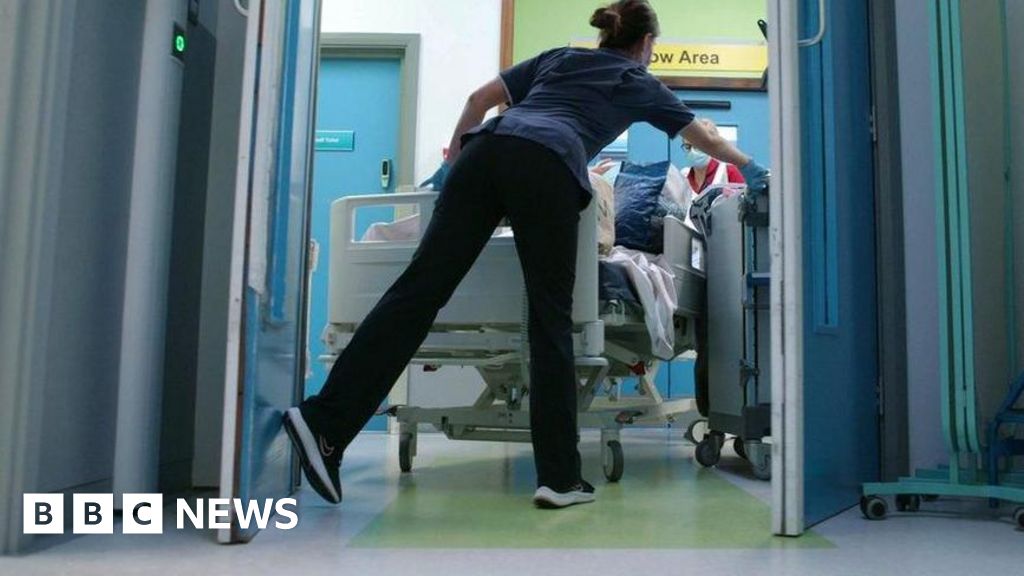ARTICLE AD BOX
Image source, Getty Images
Covid-related absences in the NHS are at their highest levels since April 2020, the month after the first virus case was confirmed in Scotland.
Official figures show about 50,200 NHS staff were off work in the week to 11 January.
The record absence level remains the first week of April 2020, when more than 65,000 NHS staff were absent.
The numbers have soared due to the rapid transmission of the Omicron variant and the strict isolation rules.
Combined with rising numbers of Covid patients, it has led to increased pressures on health and social care services in Scotland.
Until last week, both Covid cases and their household contacts had to isolate for seven days.
The Scottish government relaxed the rules on fully-vaccinated household contacts partly to stem the tide of absences.
Police Scotland and ScotRail are among other services that have also reported staff shortages due to the spread of the Omicron variant.
In England, the isolation period has been cut to five full days but a variation in the ways the days are counted means isolation periods are the same on both sides of the border.
Health care across the country traditionally comes under pressure in the winter months but it has been hit hard in recent weeks due to record-breaking Covid cases and the number of staff isolating.
Earlier this week GPs in NHS Lanarkshire suspended some services so they could prioritise the most urgent care due to the ongoing demands of the pandemic.
These cases include people with respiratory or Covid symptoms or those who believe they have symptoms of cancer.
Elsewhere, the military has been drafted in to help some health boards and NHS Grampian last week indicated it could declare a major incident within days.
In its latest update the health board said it remains behind the national trajectory and described conditions across health and social care as "exceptionally tough".
Despite some optimism that Omicron transmission is levelling off a spokeswoman added: "In the last week, the number of Covid-19 patients in NHS Grampian hospitals increased by 32% including a 74% rise of patients in intensive care.
"Staff absence is still a real challenge, especially in care and social settings.
"These Omicron difficulties continue on top of usual winter pressures, which can be testing on their own at the best of times."
The board also urged people to keep registering lateral flow results to increase confidence that infection rates are reducing.
The spokeswoman added: "Be assured that our Omicron plan is poised and ready to be escalated if any of these trigger points become unmanageable. For now, we continue to keep a very close eye on the data."
On Thursday a further 8,203 new cases were reported across Scotland but health officials believe the number may be an underestimate because of delays in reporting results and also changes in the rules on testing.
How do Scotland and England's isolation periods differ?
Image source, Getty Images
UK Health Secretary Sajid Javid announced on Thursday that the self-isolation for people who test positive for Covid in England will be cut to five full days from Monday.
In Scotland positive cases are only allowed to exit isolation after seven days if they have no fever and record two negative lateral flow tests.
But a difference in the way the days are counted mean the isolation periods are the same in England and Scotland.
In England, people begin counting isolation days the day after they develop symptoms or get a positive test.
However in Scotland, day one is from the day of symptom onset or positive result.
For example, in both nations if a person receives a positive PCR test result on a Monday they will be able to end their isolation on the subsequent Sunday.
This is subject to two consecutive negative lateral flow tests, 24 hours apart and provided they have no fever.
In Scotland the Sunday would be referred to as "day seven".
But in England, by not counting the the day of the PCR test, someone would also be free to end isolation on the Sunday after five full days (Tuesday through to Saturday).
A spokesman for the Scottish government said: "Our understanding is this change in England will bring the isolation rules into line with the current position in Scotland."

 3 years ago
86
3 years ago
86









 English (US) ·
English (US) ·